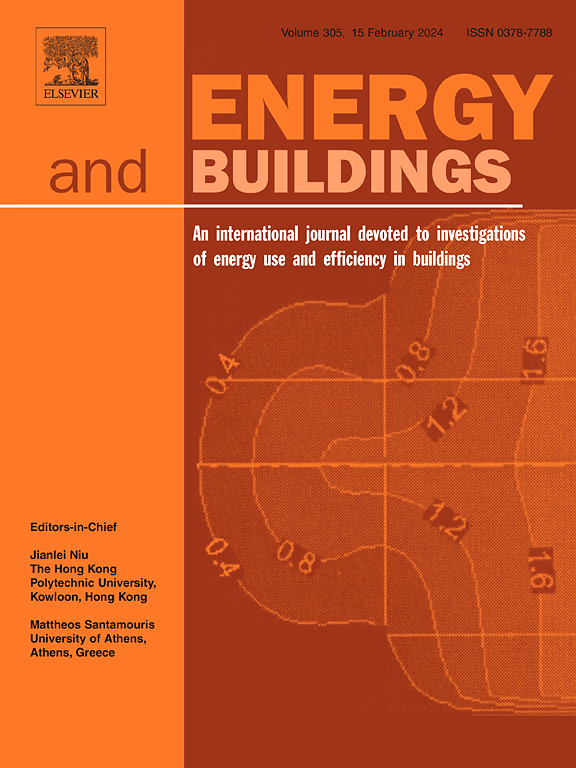Assessing performance regret of residential energy-flexibility measures under uncertainty: An ex-ante analysis of techno-economic implications
IF 6.6
2区 工程技术
Q1 CONSTRUCTION & BUILDING TECHNOLOGY
引用次数: 0
Abstract
The increase of renewable energy in the built environment, together with the intermittent nature of these sources, cause energy mismatch problems between on-site energy generation and demand. This increased interest in Energy-Flexibility (EF) measures in residential buildings. This study provides an in-depth analysis for evaluating the performance regret of investment opportunities in residential EF-measures. It includes local electricity storage, production and smart automation- under a very extended range of dynamic and uncertain boundary conditions. A component-based design space exploration method is introduced, enabling robust assessment of EF and Life Cycle Cost (LCC) performance through dynamic ex-ante LCC analysis and energy simulations. This approach effectively addresses the limitations of traditional methodologies that overlook dynamic and uncertain boundary conditions. It allows for the consideration of a complete and relevant range of Social, Technological, Economic, Environmental, and Political (STEEP) uncertainties impacting investment decisions. The methodology is tested on a typical Belgian semi-detached dwelling. Results show that combined variations in STEEP-uncertainties over time are key external factors influencing EF cost-effectiveness, with performance regret ranging from 13.6 % to 80.9 %. Application to three occupant profiles (a family of four, a teleworking couple, and a retired couple) in this study reveals minor impact on performance regret.
不确定性下住宅能源弹性措施的绩效后悔评估:技术经济影响的事前分析
建筑环境中可再生能源的增加,加上这些能源的间歇性,导致了现场能源产生和需求之间的能源不匹配问题。这增加了人们对住宅建筑能源灵活性(EF)措施的兴趣。本研究为住宅投资机会绩效后悔评估提供深入分析。它包括当地的电力储存、生产和智能自动化——在一个非常广泛的动态和不确定的边界条件下。介绍了一种基于组件的设计空间探索方法,通过动态事前LCC分析和能量模拟,实现了对EF和LCC性能的鲁棒评估。这种方法有效地解决了传统方法忽略动态和不确定边界条件的局限性。它允许考虑影响投资决策的社会、技术、经济、环境和政治(陡峭)不确定性的完整和相关范围。该方法在一个典型的比利时半独立式住宅上进行了测试。结果表明,随着时间的推移,陡峭不确定性的综合变化是影响EF成本效益的关键外部因素,绩效遗憾从13.6%到80.9%不等。在本研究中,对三个占用者(四口之家、远程办公夫妇和退休夫妇)的应用表明,绩效后悔的影响很小。
本文章由计算机程序翻译,如有差异,请以英文原文为准。
求助全文
约1分钟内获得全文
求助全文
来源期刊

Energy and Buildings
工程技术-工程:土木
CiteScore
12.70
自引率
11.90%
发文量
863
审稿时长
38 days
期刊介绍:
An international journal devoted to investigations of energy use and efficiency in buildings
Energy and Buildings is an international journal publishing articles with explicit links to energy use in buildings. The aim is to present new research results, and new proven practice aimed at reducing the energy needs of a building and improving indoor environment quality.
 求助内容:
求助内容: 应助结果提醒方式:
应助结果提醒方式:


